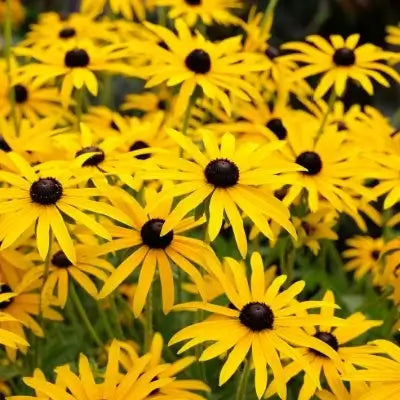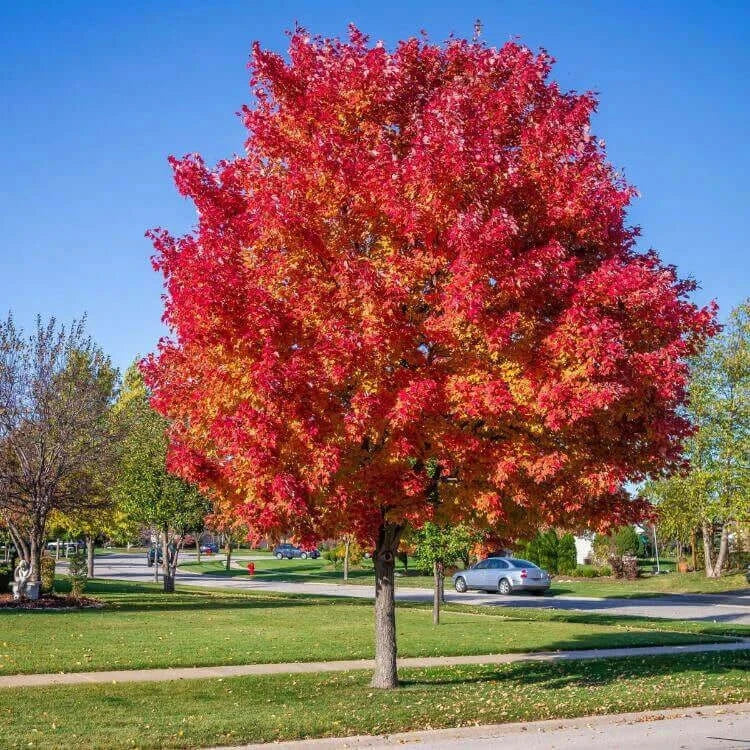10 Best Natural Gardening Tips for Beginners
Natural gardening, also known as organic gardening, is a practice that revolves around cultivating plants without the use of synthetic pesticides. It emphasizes harmonizing with nature to create a sustainable and healthy garden environment. Natural gardening might seem daunting for beginners. Still, it's a rewarding and fulfilling journey that connects you with the natural world's rhythms. This article will explore the ten best natural gardening tips to help beginners start on their path to a thriving and eco-friendly garden.
Choose the Right Location: The correct location for your garden is essential. Choose a spot that receives sunlight and good drainage. Consider the shade patterns, wind direction, and proximity to water sources. A well-chosen location sets the foundation for a successful natural garden.
Start with Healthy Soil: Healthy soil is the cornerstone of any successful garden. Focus on building and maintaining your soil's fertility through natural means. Incorporate compost, well-rotted manure, and other organic matter to improve soil structure, moisture retention, and nutrient content. Healthy soil supports robust plant growth and enhances the overall ecosystem.
Use Native Plants: Native plants require less water and maintenance than non-native species. By choosing native plants, you'll create a habitat that supports local wildlife and helps maintain the ecological balance.
Practice Companion Planting: Companion planting involves strategically placing different plants together to benefit each other. For instance, planting marigolds near tomatoes can deter pests, while beans can enrich the soil with nitrogen. Research companion planting combinations that work well for the plants you want to grow.
Embrace Biodiversity: A diverse garden is more resilient to pests and diseases. Plant various crops and flowers to attract multiple beneficial insects and pollinators. It helps maintain a balanced ecosystem and reduces the need for chemical interventions.
Mulching Matters:
Mulching serves multiple purposes in a natural garden. It helps retain moisture, suppresses weeds, and regulates soil temperature. Use organic materials like straw, leaves, or wood chips for effective mulching.<>Water Wisely: Efficient watering is crucial for natural gardening. Water deeply but less frequently to encourage profound root growth. Consider using soaker hoses to minimize water wastage. Collect rainwater in barrels to provide your plants with a natural water source.
Encourage Beneficial Insects:
Create habitats for these insects by planting flowers that provide pollen. Avoid using synthetic pesticides that can harm these helpful creatures.
Compost Regularly: Composting kitchen scraps and garden waste reduces landfill waste and creates nutrient-rich compost for your garden.
Practice Patience and Observation: Natural gardening requires observation and patience. Monitor your garden regularly for nutrient deficiencies. By being proactive, you can address issues before they become significant problems. Also, understand that natural processes take time, so be patient and allow your garden to develop at its own pace.
Conclusion
Embarking on a journey of natural gardening as a beginner might seem daunting, but it's a step toward a more sustainable and harmonious way of cultivating plants. These ten best natural gardening tips create a thriving garden and contribute positively to the environment. Remember that natural gardening is about working with nature, nurturing the soil, and fostering biodiversity. As you gain experience, you'll develop a deeper understanding of the interconnectedness of all living things in your garden ecosystem. So, roll up your sleeves, dig in the soil, and enjoy the beauty and rewards of your natural garden.
In a world marked by urbanization, pollution, and environmental degradation, the practice of natural gardening has emerged as a beacon of hope for reconnecting with nature and nurturing a healthier planet. The conclusion encapsulates the essence of the wild gardening journey, drawing from the plethora of tips and insights shared earlier, and highlights its significance for individuals, communities, and the Earth.
1. Nurturing Biodiversity:
Central to the concept of natural gardening is the emphasis on biodiversity. Gardeners can create a balanced ecosystem supporting various life forms, from pollinators to beneficial insects, by cultivating multiple plants, flowers, and herbs. This approach not only enriches the garden's aesthetics but also contributes to the overall health of the local environment.
2. Soil Health: Natural gardening uses compost, mulch, and cover crops to enhance soil fertility, structure, and moisture retention. By avoiding synthetic fertilizers and pesticides, gardeners can promote the growth of beneficial microorganisms that support plant growth and improve the long-term sustainability of the garden.
3. Water Conservation:
In a world where water scarcity is becoming increasingly prevalent, adopting water-efficient practices is crucial. It conserves a precious resource and minimizes runoff and soil erosion.
4. Chemical-Free Approach:
One of the cornerstones of natural gardening is the avoidance of synthetic chemicals. By opting for natural alternatives like neem oil, garlic spray, and companion planting, gardeners can effectively manage pests and diseases without harming beneficial insects or contaminating the environment.
5. Permaculture Principles:
Permaculture, a design approach rooted in sustainable agriculture, offers valuable insights into natural gardening. Principles such as observing and interacting with nature, capturing and storing energy, and integrating rather than segregating elements can guide gardeners in creating self-sustaining and harmonious landscapes.
6. Mindful Garden Design:
A successful natural garden is a collection of plants and a thoughtfully designed space mimicking natural ecosystems. Features like wildlife habitats, bird feeders, and butterfly gardens can attract diverse creatures and foster a sense of unity with nature. Moreover, the layout and arrangement of plants can optimize sunlight, wind flow, and water distribution.
7. Education and Community Engagement:
Natural gardening extends beyond individual plots; it has the potential to cultivate a sense of community and environmental consciousness. Workshops, garden tours, and shared spaces can unite people to exchange knowledge and experiences. By involving younger generations, we can ensure the continuity of these practices and inspire a greater appreciation for the natural world.
8. Healing and Well-being:
Beyond its environmental benefits, natural gardening offers a range of therapeutic and well-being advantages. As such, natural gardens can serve as sanctuaries for mental and emotional rejuvenation.
9. Ethical Consumption:
Choosing to embrace natural gardening reflects a broader shift towards conscious and ethical consumption. By growing one's food, reducing waste, and minimizing the carbon footprint associated with conventional agriculture, individuals can actively contribute to a more sustainable food system and lessen the impact on the planet.
10. A Call to Action:
As the challenges of climate change loom, the practice of natural emerges as a practical and empowering response. Each step towards nurturing a natural garden is healing the Earth and rekindling our relationship. By embracing these principles, we enhance the beauty of our surroundings and contribute to future generations' well-being.
Natural gardening is more than a set of techniques;
It's a philosophy that fosters a deep connection with nature. The journey of tending to a garden teaches us patience, resilience, and the importance of coexisting with the natural world. It's a testament to our capacity to positively impact and create a harmonious coexistence between humans, plants, and animals.
As we conclude this exploration of natural gardening tips, let us remember that every seed sown, every bee attracted, and every smile exchanged over a blooming garden is a small yet significant contribution to the greater goal of sustainable living and a healthier planet for all.
























































 " alt="Featured Collection Perennials " />
" alt="Featured Collection Perennials " />
 " alt="Featured Collection Ferns " />
" alt="Featured Collection Ferns " />
 " alt="Featured Collection Live Moss " />
" alt="Featured Collection Live Moss " />
 " alt="Featured Collection Trees " />
" alt="Featured Collection Trees " />
 " alt="Featured Collection Shrubs " />
" alt="Featured Collection Shrubs " />
 " alt="Featured Collection Vines " />
" alt="Featured Collection Vines " />
